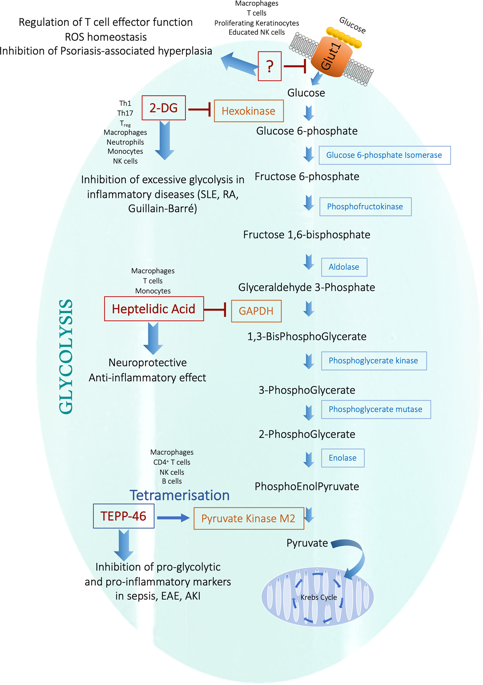Cell Research ( IF 28.1 ) Pub Date : 2020-03-04 , DOI: 10.1038/s41422-020-0291-z Eva M Pålsson-McDermott 1 , Luke A J O'Neill 1

|
The growing field of immunometabolism has taught us how metabolic cellular reactions and processes not only provide a means to generate ATP and biosynthetic precursors, but are also a way of controlling immunity and inflammation. Metabolic reprogramming of immune cells is essential for both inflammatory as well as anti-inflammatory responses. Four anti-inflammatory therapies, DMF, Metformin, Methotrexate and Rapamycin all work by affecting metabolism and/or regulating or mimicking endogenous metabolites with anti-inflammatory effects. Evidence is emerging for the targeting of specific metabolic events as a strategy to limit inflammation in different contexts. Here we discuss these recent developments and speculate on the prospect of targeting immunometabolism in the effort to develop novel anti-inflammatory therapeutics. As accumulating evidence for roles of an intricate and elaborate network of metabolic processes, including lipid, amino acid and nucleotide metabolism provides key focal points for developing new therapies, we here turn our attention to glycolysis and the TCA cycle to provide examples of how metabolic intermediates and enzymes can provide potential novel therapeutic targets.
中文翻译:

靶向免疫代谢作为一种抗炎策略
不断发展的免疫代谢领域告诉我们,代谢细胞反应和过程不仅提供了一种生成 ATP 和生物合成前体的方法,而且还是一种控制免疫和炎症的方法。免疫细胞的代谢重编程对于炎症和抗炎反应都是必不可少的。DMF、二甲双胍、甲氨蝶呤和雷帕霉素这四种抗炎疗法均通过影响新陈代谢和/或调节或模拟具有抗炎作用的内源性代谢物发挥作用。针对特定代谢事件作为在不同情况下限制炎症的策略的证据正在出现。在这里,我们讨论这些最近的发展,并推测靶向免疫代谢以开发新型抗炎疗法的前景。











































 京公网安备 11010802027423号
京公网安备 11010802027423号